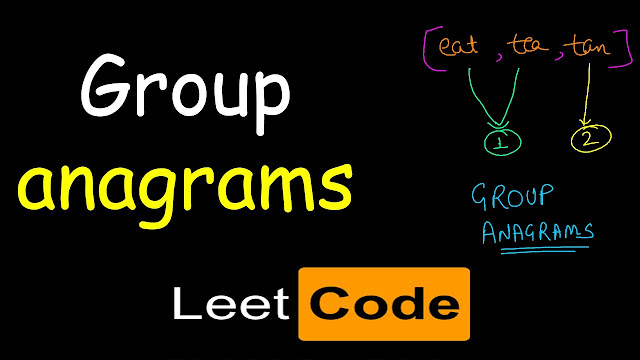Given an array of strings strs, group the anagrams together. You can return the answer in any order.
An Anagram is a word or phrase formed by rearranging the letters of a different word or phrase, typically using all the original letters exactly once.
Example 1:
Input: strs = ["eat","tea","tan","ate","nat","bat"]
Output: [["bat"],["nat","tan"],["ate","eat","tea"]]
Example 2:
Input: strs = [""]
Output: [[""]]
Example 3:
Input: strs = ["a"]
Output: [["a"]]
Constraints:
1 <= strs.length <= 1040 <= strs[i].length <= 100strs[i]consists of lowercase English letters.
class Solution {
public:
vector<vector<string>> groupAnagrams(vector<string>& strs) {
unordered_map<string, vector<string>> mp;
for (string s : strs) {
mp[strSort(s)].push_back(s);
}
vector<vector<string>> anagrams;
for (auto& p : mp) {
//cout << p.first << " " << p.second << endl;
anagrams.push_back(p.second);
}
return anagrams;
}
private:
string strSort(string s) {
int counter[26] = {0};
for (char c : s) {
counter[c - 'a']++;
}
string t;
for (int c = 0; c < 26; c++) {
t += string(counter[c], c + 'a');
//cout << string(counter[c], c + 'a') << endl;
//cout << t << endl;
}
//cout << t << endl;
return t;
}
};In the above line, string() object is constructed based on the n consecutive copies of characters c. Click here to read more.
Here, string(size_t n, char c) is called fill constructor. It fills the string with n consecutive copies of character c.
Instead of strSort, we can just use sort(s) from algorithm library.
class Solution { public: vector<vector<string>> groupAnagrams(vector<string>& strs) { unordered_map<string, vector<string>> mp; for (string s : strs) { mp[strSort(s)].push_back(s); } vector<vector<string>> anagrams; for (auto& p : mp) { //cout << p.first << " " << p.second << endl; anagrams.push_back(p.second); } return anagrams; } private: string strSort(string s) { sort(s.begin(), s.end()); return s; } };

Comments
Post a Comment